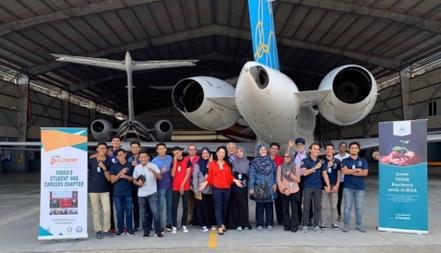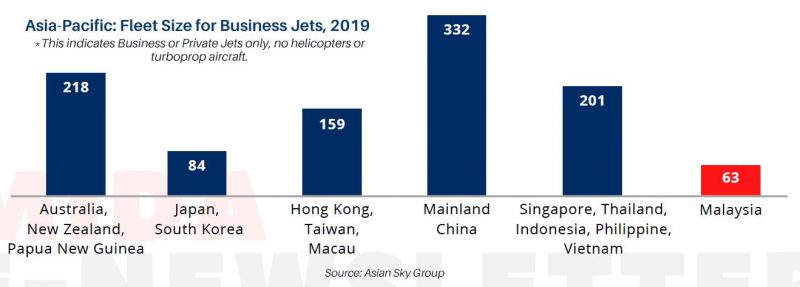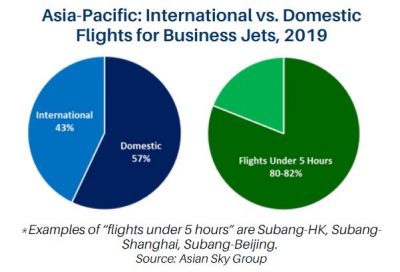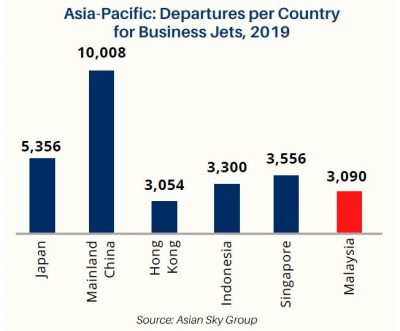
This site
is mobile
responsive
About AsBAA
The Asian Business Aviation Association (AsBAA) is a member-led non-profit association representing business and general aviation in Asia. It is affiliated with the International Business Aviation Council (IBAC), a body within the governing International Commercial Aviation Organisation (ICAO) based in Canada.
AsBAA members include all major aviation industry players such as aircraft, engines and accessories manufacturers (OEMs), maintenance and repair operations (MROs) service providers, fixed base operators (FBOs), aircraft operators, aircraft management companies, ground handlers, trip support organisations, as well as service providers, finance, legal and insurance companies. These members volunteer their time, experience and resources to grow the business and general aviation industry in Asia.
AsBAA’s mission is to represent the needs of its members and the wider industry through its three core pillars, namely Advocacy, Representation and Community. Among the organisation’s active engagements include:
Over the past 20 years, AsBAA has built its representation in Malaysia, Singapore, Indonesia, Philippines, Thailand, Vietnam, Cambodia, Myanmar, Hong Kong, Macau, Taiwan and Mainland China. Headquartered in Hong Kong, its current Chairman is Mr. Wu Zhendong of China.

AsBAA in Malaysia
The AsBAA Malaysia Chapter was established in 2014, and its members primarily operate out of the Subang International Airport. The current Head of Malaysia Chapter is Ms. Aida Ismail.
Among the prominent members with operations in Malaysia include Asia Jet Partners Malaysia, Execujet MRO Services, Pen Aviation, Sapura Aero and SkyPark FBO as well as several locally-based aviation industry professionals. Internationally-based members operating in Malaysia include ACASS, Dassault, Hadid International Services and TAG Aviation.
In 2018, the AsBAA Malaysia Chapter began actively engaging the aviation authorities in Malaysia for business and general aviation to be recognised as a significant segment within the greater aviation industry.

Historically, the development of commercial airlines and airports have been given more attention in Malaysia, compared to a business or general aviation. The AsBAA Malaysia Chapter is working to address this disparity.
Representing the unified voice of its members, AsBAA is engaging with the Ministry of International Trade and Industry (MITI) and the Malaysian Investment Development Authority (MIDA), as well as relevant agencies like the Malaysia External Trade Development Corporation (MATRADE) and the National Aerospace Industry Coordinating Office (NAICO) to explore possible industry developments for business and general aviation in Malaysia. This is a vast difference from the past whereby members of AsBAA had typically engaged government authorities individually, usually only within the ambits of investment potentials.
Also, the AsBAA Malaysia Chapter fervently engages with various aviation industry stakeholders such as the Ministry of Transport (MOT), the Civil Aviation Authority of Malaysia (CAAM), the Malaysian Aviation Commission (Mavcom), Malaysia Airports and Invest Selangor.
During the implementation of the Movement Control Order (MCO), the AsBAA Malaysia Chapter and MIDA had its first dialogue on 10 June 2020 to discuss prevalent issues within the business aviation industry via Zoom. Subsequently, MIDA called for a Business Clinic and Workshop, together with AsBAA and other industry stakeholders on 16 July 2020 to further drive discussions.
AsBAA hopes that through this workshop, members would start having more support in terms of financing and incentives, particularly for banks in Malaysia to have more aviation industry-friendly policies. Most importantly, there is an urgent need to highlight to all stakeholders that the aviation industry and the aerospace industry are different.
Snapshot of the Malaysian Business Aviation Industry
What is business aviation?
In a nutshell, business aviation encompasses
private jets and corporate jets,
owned or chartered, that flies high net worth
individuals (HNWI) and corporate leaders
to and from their destinations.
Although business aviation is a relatively young industry in Malaysia and the region, it has the potential to grow, given the benchmarks from developed markets like North America and Europe.
Based on the pre- COVID-19 Asian Sky Group’s Fleet Report 2019 and its Quarterly Report for Q42019, the Asia Pacific regional fleet of business jets saw a 0.9 per cent growth in 2019, compared to the 2018 period.


Additionally, while the data suggests that most business jets are deployed to fly regionally, at least 49 per cent of the Malaysian business jet fleet does have the capabilities to fly longer routes.

In 2019, Malaysia recorded an average of approximately 8.5 flights a day. In comparison, Singapore averaged 9.7 flights a day. However, Malaysia’s numbers were a combination from several key airports, namely Subang, Penang, Langkawi, Senai, Kota Kinabalu and Kuching; while Singapore’s figures were derived from only one airport, Seletar. This illustrates the high level of efficiency and economies of scale deployed by the operators at Seletar, a benchmark that Malaysia can emulate for the future.
Additionally, it was noteworthy that approximately 43 per cent of business aviation flights in Malaysia, represented by 1,450 flights out of 3,090 flights recorded, were international flights. To effectively seize this opportunity, Malaysia will need to engage its stakeholders to further develop its attractions. This will not only increase the percentage and the absolute number of international flights in the country but also create spillover to the domestic businesses.
AsBAA Discovery
AsBAA is committed to create awareness and instil interest of business and general aviation within the public sphere, at large. AsBAA Discovery, the AsBAA NextGen initiative which is a part of its Corporate Social Responsibility (CSR) efforts in the region, looks to introduce the business and general aviation for students, particularly those seeking for a career in the aviation industry.
In Malaysia, AsBAA Discovery has engaged students of various levels since 2018, including those from aviation education institutions, primary schools and pre-schools. Often, these engagements involve visits to airports, hangars, and even the control towers. The primary objective is to expose these Next-Gen assets to the world of aviation, specifically business aviation.
AsBAA Malaysia Safety Day and Women in Corporate Aviation Asia Launch
The AsBAA Malaysia Chapter Malaysia is also ramping up its profile through aviation related international events. The international conference is focused on aviation safety, which is a crucial advocacy subject-matter for AsBAA.
The event was initially disrupted by the MCO implementation during the first half of 2020. However, it is now targeted to be held on 3rd November 2020 at The Saujana Hotel near the Subang International Airport. On the day, AsBAA will not only be hosting the AsBAA Malaysia Safety Day but will also be launching the inaugural Women in Corporate Aviation Asia event. This launch will celebrate the active participation and achievements of women in the aviation industry, particularly in Malaysia and Asia.
With MIDA’s support, AsBAA is confident that it will achieve more, fly higher and be more engaged with all stakeholders, particularly the public and media.
Explore other related content to further
explore MIDA’s insights.

